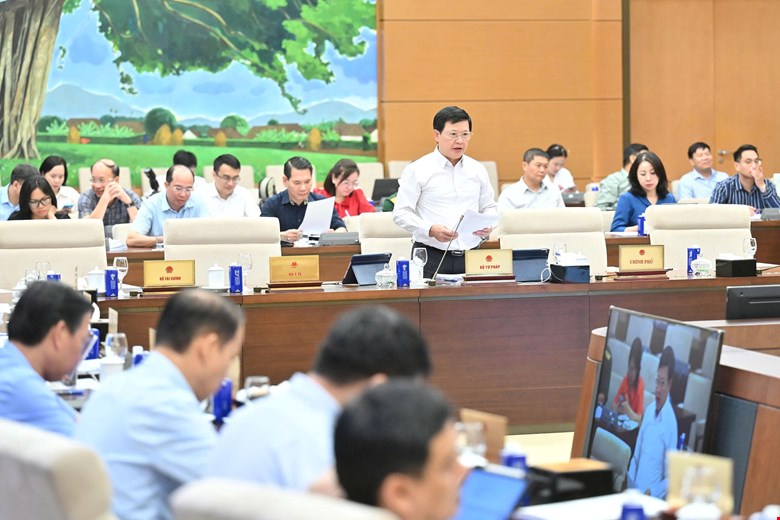On August 12, the National Assembly Standing Committee gave its opinion on the draft Law on Civil Judgment Enforcement (amended).
The draft Law consists of 5 Chapters and 96 Articles; reduces 4 chapters, removes 48 articles, keeps 1 article, amends and merges 131 articles; adds 15 new articles compared to the current Law on Civil Judgment Enforcement.
Deputy Minister of Justice Mai Luong Khoi said that the draft Law adjusts groups of contents such as the current Law on Civil Judgment Enforcement, and at the same time amends and supplements to fully and promptly institutionalize the Party's policies and guidelines.
In addition, overcoming current shortcomings and lack of consistency, the draft Law also completes regulations on procedures and order, shortens time, reduces costs, and improves the effectiveness of civil judgment enforcement according to the requirements of Resolution No. 27-NQ/TW.
At the same time, in order to overcome the shortcomings, limitations, obstacles, and inadequacies in the practical work of civil judgment enforcement, the draft Law amends and completes regulations on the order and procedures for civil judgment enforcement.

Presenting a summary of the review report, Chairman of the Law and Justice Committee Hoang Thanh Tung said that the comprehensive amendment of the Law aims to concretize the Party's policies and orientations on streamlining the state apparatus.
In addition, increase the application of science, technology and digital transformation, and socialize some civil judgment enforcement activities.
Along with that, overcome shortcomings, limitations, and obstacles, improve the effectiveness of civil judgment enforcement activities and ensure consistency and unity with the legal system, especially with new laws on the organization of judicial agencies passed by the National Assembly.
Commenting on this content, Politburo member and National Assembly Chairman Tran Thanh Man highly appreciated the draft Law; at the same time, he noted that laws related to human rights need to be regulated very specifically to facilitate implementation.
Regarding the rights and obligations of those who are eligible for enforcement of judgments and those who are subject to civil judgments, the National Assembly Chairman suggested that the regulation should ensure simplicity and eliminate unnecessary procedures.
Regarding the standards for appointing enforcement officers, the National Assembly Chairman agreed with the draft Law and said that, from the practice of expanding the appointment of enforcement officers in the past, it is necessary to " select good people" not to select "good candidates" as enforcement officers.
Another issue that the National Assembly Chairman is concerned about is prioritizing areas with special difficulties in selecting and appointing enforcement officers who do not pass the entrance exam for those who have committed to working for 5 years or more in mountainous, border, island areas, and ethnic minority areas; the Government should specify in detail the policies.
The National Assembly Chairman also said that there should be a mechanism to exempt civil judgments for state budget revenues, but at the same time, it is necessary to ensure compliance with criminal policies, principles of the Penal Code, and the Criminal Judgment Enforcement Code.
The enforcement agencies shall consider the decision to exempt judgments that do not meet enforcement conditions to increase feasibility and avoid prolongation due to strict procedures.
Concluding this content, Vice Chairman of the National Assembly Nguyen Khac Dinh suggested that the drafting agency continue to study and complete the draft Law, if eligible, the draft Law can be submitted to the National Assembly for consideration according to the one-session process at the upcoming 10th Session.











